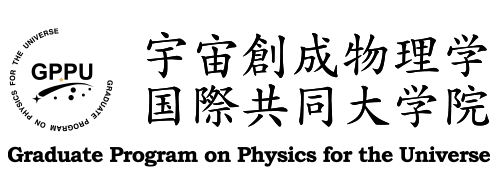GPPU Seminar
Solar system initiation and its early, rapid growth and differentiation of planets
William F. McDonough
(University of Maryland/Tohoku University)
Date
13:00-15:00, July 23rd, 2018Place
Room 203, Science Complex A (H-02) mapAbstract
The local ISM (interstellar medium) was likely in secular equilibrium with SLRs (short lived radionuclides, e.g., 60Fe and 26Al) from galactic sources (e.g., AGB stars, supernovae, neutron star mergers). The relative proportions of these SLRs constrain the inputs and triggers for the initiation of the solar system. By adding mass and momentum via stellar winds from a Wolf-Rayet (W-R) Bubble a molecular gas-dust cloud underwent gravitational collapse and co-rotation to form our solar system. Cosmochemical observations regarding the abundances, distribution, and behavior of the elements and their isotopes in the Sun, meteorites, and planets provide critical constraints for dynamics and mixing in the early protoplanetary accretion disk. The primitive meteorites (chondrites) are the building blocks of the planets, whereas the differentiated meteorites document early rapid planetary growth and evolution. Short- and long-lived radionuclides define the stellar sources for the solar system and the planetary heat sources and their timing of accretion and differentiation (e.g., core formation).Point
GSP 1Contact: Yusuke Tanimura (tanimura [at] nucl.phys.tohoku.ac.jp)
